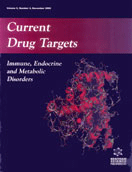Abstract
An outstanding question of current immunology is to define the mechanisms by which microbial products influence the immunopathologic host response elements in the early stages of infection. Macrophages are now well recognized to have a critical role in both innate and acquired immunity. In order to adjust promptly to continuous changes in microenvironment and maintain the immunologic balance, macrophages adequately respond by activating one of the numerous immunologic programs. However, sustained macrophage activation and excessive production of inflammatory mediators can perpetuate the numerous pathological processes and contribute to induction of stress response and even apoptosis. Therefore, selective modulation of macrophage activity represents an important strategy for prevention and treatment of inappropriate inflammatory responses in order to minimize the unwanted side-effects of the immunity. Macrophages can be selectively reprogrammed for a specific phenotype of immune response, e.g. cytokine or nitric oxide (NO), by relatively short-term exposure of the cells to substimulatory concentrations of different microbial components, including LPS. These LPS-dependent reprogramming effects are mediated by IFNgamma- independent autocrine cytokine regulatory mechanisms that also controlled at the transcriptional level. Furthermore, LPS reprogrammed macrophages exhibit differential capacity to resist experimentally induced apoptosis and to produce heat shock proteins. Complete analysis of, and appreciation for, the immunoregulatory mechanisms implicated in LPS-dependent reprogramming of immune responses in macrophages can be expected to increase our understanding of the host innate response, as well as allow investigators to utilize emerging immunologic technologies in effective treatment of infections and chronic inflammatory diseases.
Keywords: macrophages, lps, stress response, apoptosis, nitric oxide, cytokines, innate and acquired immunity
Current Drug Targets - Immune, Endocrine & Metabolic Disorders
Title: Controlled Modulation of Inflammatory, Stress and Apoptotic Responses in Macrophages
Volume: 3 Issue: 1
Author(s): I. Yu. Malyshev and A. Shnyra
Affiliation:
Keywords: macrophages, lps, stress response, apoptosis, nitric oxide, cytokines, innate and acquired immunity
Abstract: An outstanding question of current immunology is to define the mechanisms by which microbial products influence the immunopathologic host response elements in the early stages of infection. Macrophages are now well recognized to have a critical role in both innate and acquired immunity. In order to adjust promptly to continuous changes in microenvironment and maintain the immunologic balance, macrophages adequately respond by activating one of the numerous immunologic programs. However, sustained macrophage activation and excessive production of inflammatory mediators can perpetuate the numerous pathological processes and contribute to induction of stress response and even apoptosis. Therefore, selective modulation of macrophage activity represents an important strategy for prevention and treatment of inappropriate inflammatory responses in order to minimize the unwanted side-effects of the immunity. Macrophages can be selectively reprogrammed for a specific phenotype of immune response, e.g. cytokine or nitric oxide (NO), by relatively short-term exposure of the cells to substimulatory concentrations of different microbial components, including LPS. These LPS-dependent reprogramming effects are mediated by IFNgamma- independent autocrine cytokine regulatory mechanisms that also controlled at the transcriptional level. Furthermore, LPS reprogrammed macrophages exhibit differential capacity to resist experimentally induced apoptosis and to produce heat shock proteins. Complete analysis of, and appreciation for, the immunoregulatory mechanisms implicated in LPS-dependent reprogramming of immune responses in macrophages can be expected to increase our understanding of the host innate response, as well as allow investigators to utilize emerging immunologic technologies in effective treatment of infections and chronic inflammatory diseases.
Export Options
About this article
Cite this article as:
Malyshev Yu. I. and Shnyra A., Controlled Modulation of Inflammatory, Stress and Apoptotic Responses in Macrophages, Current Drug Targets - Immune, Endocrine & Metabolic Disorders 2003; 3 (1) . https://dx.doi.org/10.2174/1568008033340342
| DOI https://dx.doi.org/10.2174/1568008033340342 |
Print ISSN 1568-0088 |
| Publisher Name Bentham Science Publisher |
Online ISSN 1875-5917 |
 24
24Related Articles
-
Paclitaxel Loaded Nanoliposomes in Thermosensitive Hydrogel: A Dual Approach for Sustained and Localized Delivery
Anti-Cancer Agents in Medicinal Chemistry Recent Patents in the Field of Radioprotector Development: Opportunities and Challenges
Recent Patents on Biotechnology The Immune Response in SAPHO Syndrome: Deficiency, Hyper- Responsiveness, or Both?
Current Rheumatology Reviews A Practical Guide for the Treatment of Symptomatic Heart Failure with Reduced Ejection Fraction (HFrEF)
Current Cardiology Reviews Regulation of Ingestive Behavior, the Upper Gastrointestinal Motility and Gastric Acid Secretion by Ghrelin in Mammals
Current Nutrition & Food Science Oxidative Stress and Psychological Disorders
Current Neuropharmacology Transgenic Mouse Models of Alzheimer Disease: Developing a Better Model as a Tool for Therapeutic Interventions
Current Pharmaceutical Design Harnessing Phage Display for the Discovery of Peptide-Based Drugs and Monoclonal Antibodies
Current Medicinal Chemistry Tailored Angiogenesis Inhibition in Cancer Therapy: Respecting the Heart to Improve the Net Outcome
Current Signal Transduction Therapy Preclinical Models of Graves’ Disease and Associated Secondary Complications
Current Pharmaceutical Design An Appraisal of Current Pharmacological Perspectives of Sesamol: A Review
Mini-Reviews in Medicinal Chemistry Polymorphic Drug Metabolism in Anaesthesia
Current Drug Metabolism Dextran-based Nanocarriers for Delivery of Bioactives
Current Pharmaceutical Design Mechanisms of Action of Metformin in Type 2 Diabetes and Associated Complications: An Overview
Mini-Reviews in Medicinal Chemistry Experimental Strategies in Autoimmunity: Antagonists of Cytokines and their Receptors, Nanocarriers, Inhibitors of Immunoproteasome, Leukocyte Migration and Protein Kinases
Current Pharmaceutical Design Beta-Blocker Therapy for Septic Cardiac Shock: Fiction Or Realism?
Current Drug Therapy Melatonin Causes Gene Expression in Aged Animals to Respond to Inflammatory Stimuli in a Manner Differing from that of Young Animals
Current Aging Science How Similar are Human Mesenchymal Stem Cells Derived from Different Origins? A Review of Comparative Studies
Current Stem Cell Research & Therapy miRNA-146a Improves Immunomodulatory Effects of MSC-derived Exosomes in Rheumatoid Arthritis
Current Gene Therapy Non-Specific Microbicide Product Development: Then and Now
Current HIV Research



















